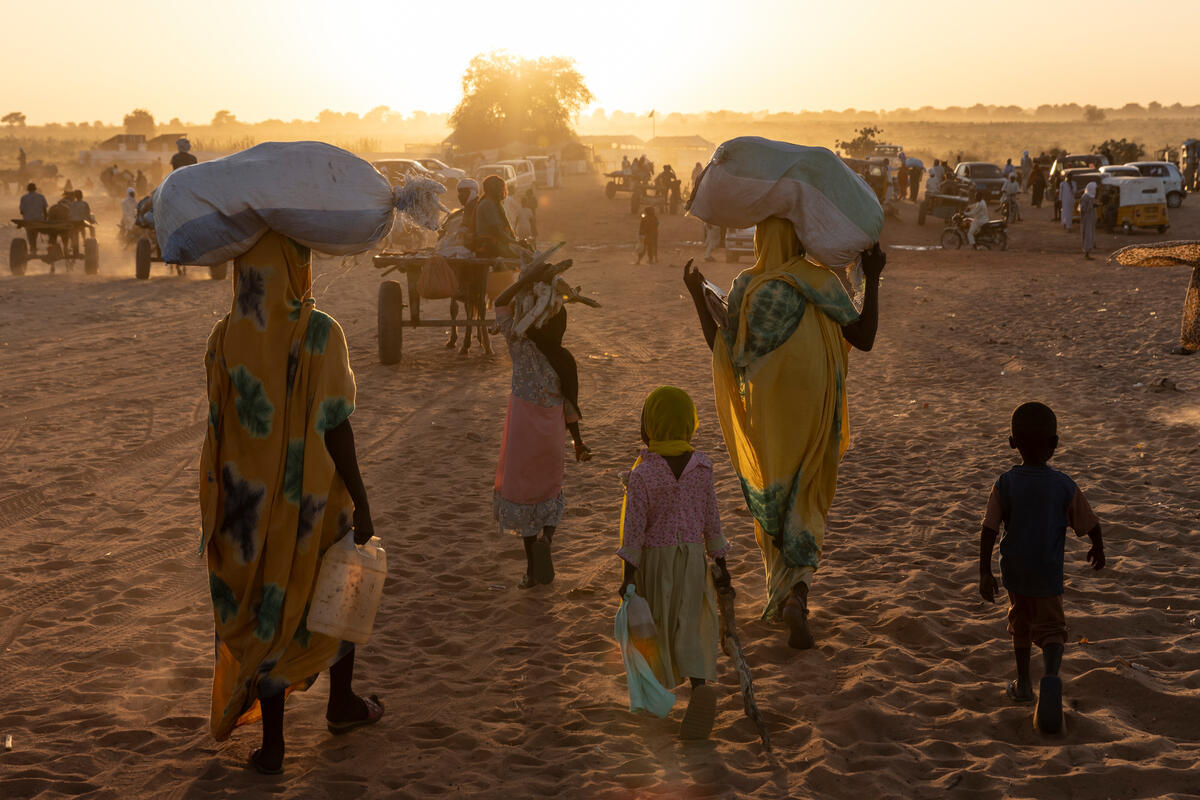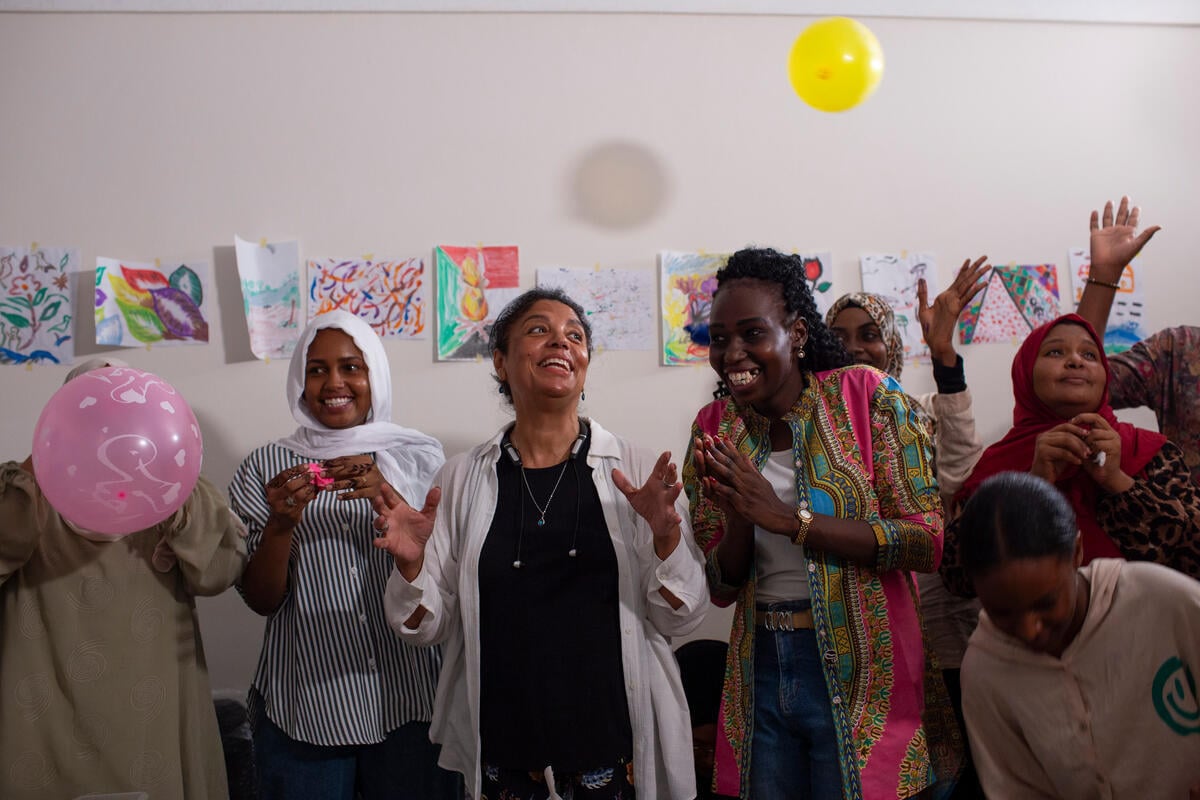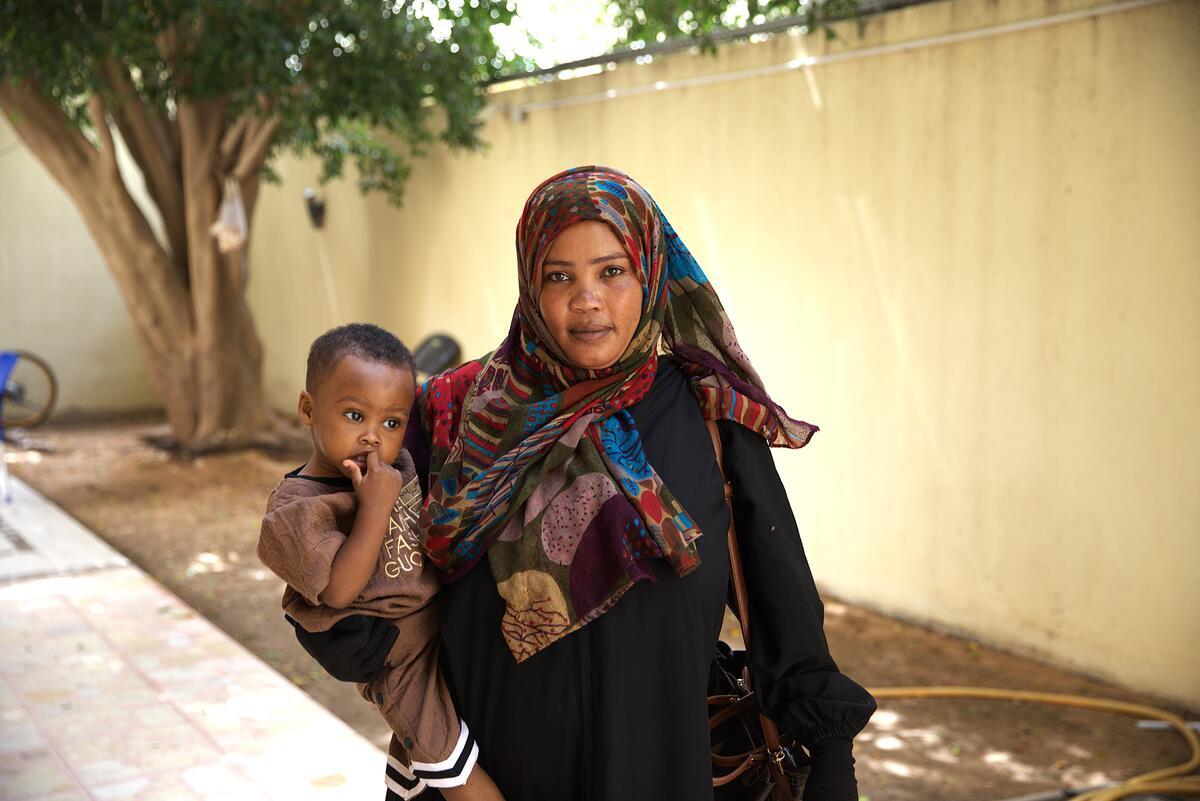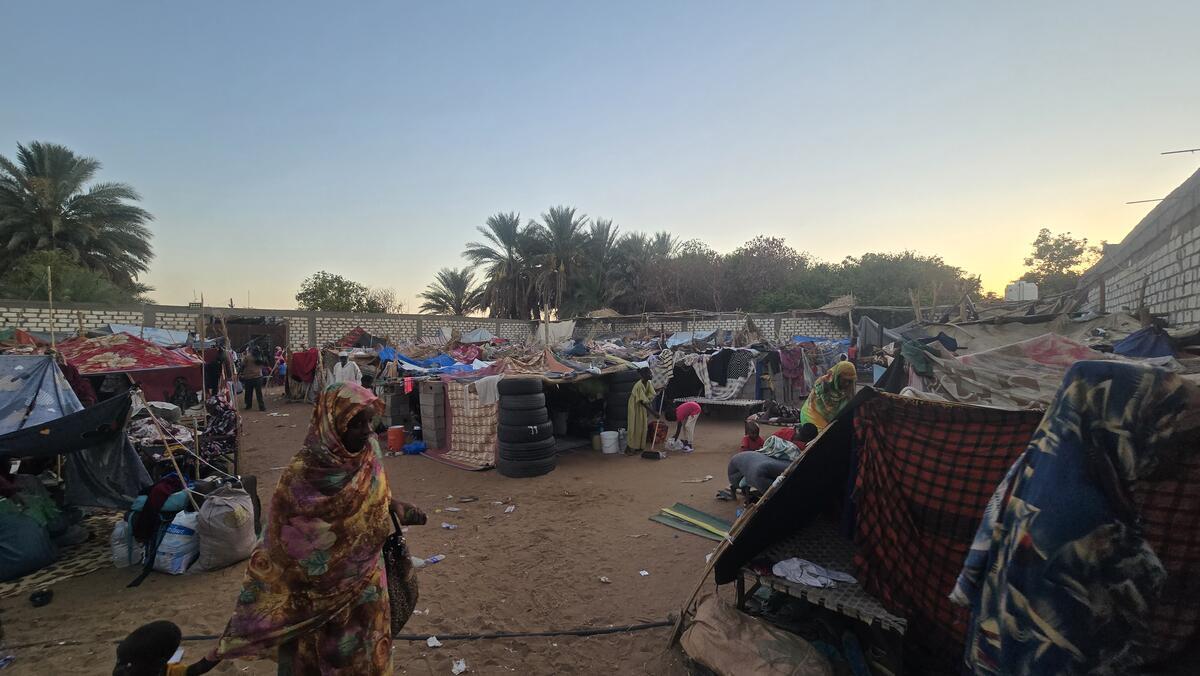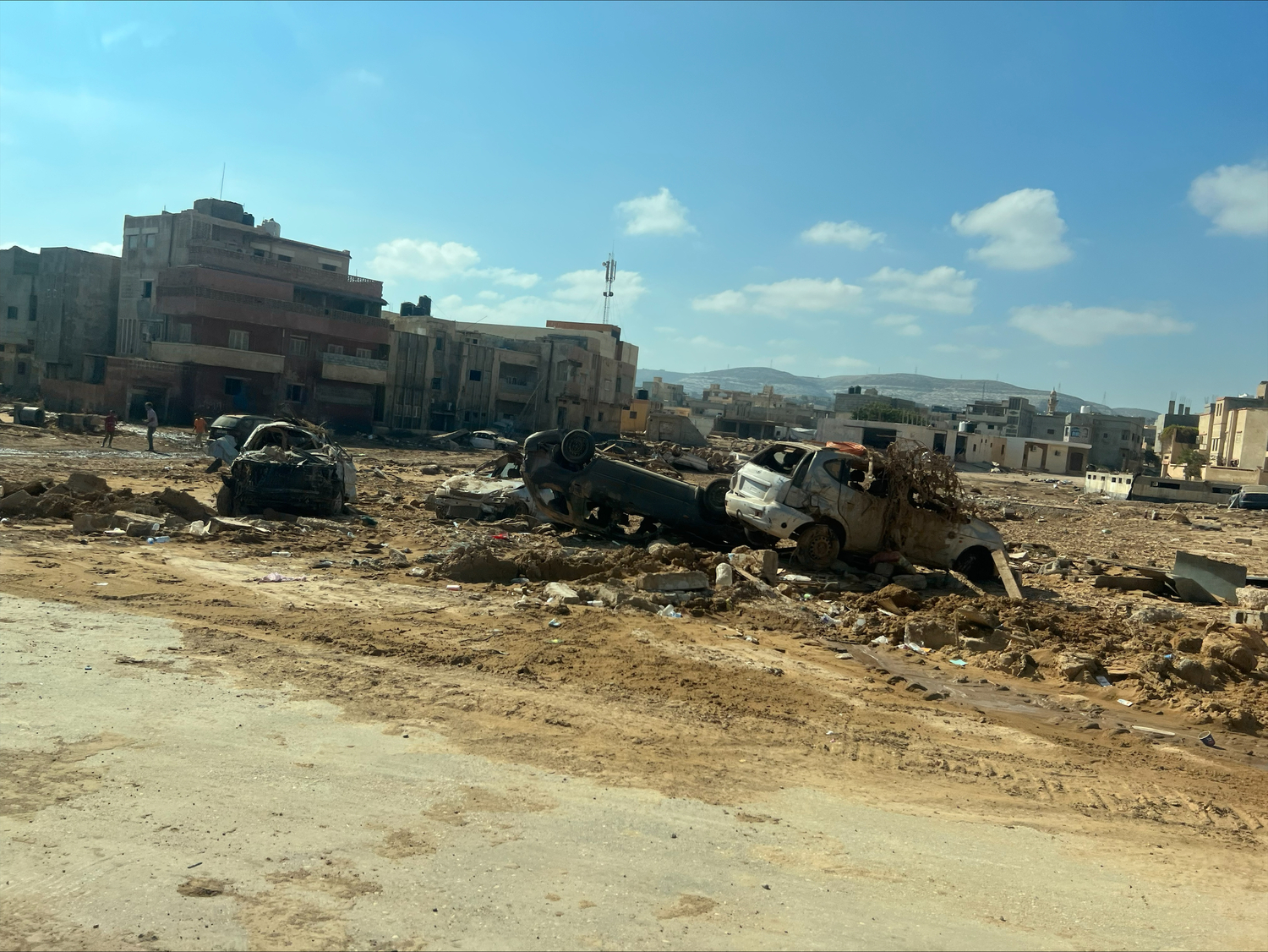UNHCR and IOM seek continued momentum in international humanitarian efforts as fighting in Libya escalates
UNHCR and IOM seek continued momentum in international humanitarian efforts as fighting in Libya escalates

TUNIS, Tunisia, March 9 (UNHCR) - The heads of the UN refugee agency and the International Organization for Migration wrapped up a two-day visit to Tunisia on Wednesday with a call for "continued international momentum" as people still flee Libya by the thousands.
High Commissioner for Refugees António Guterres and IOM Director General William Swing noted that a joint IOM-UNHCR humanitarian evacuation initiative launched last week had dramatically relieved the overcrowding at the border with the immediate airlift response of governments. Within days, tens of thousands of Egyptians were flown home.
"Our immediate goal is to ensure that every migrant worker that has fled Libya can go home safely and in dignity as quickly as possible. They have suffered enough," Swing said, noting the need to increase significantly the number of evacuation flights, particularly to Bangladesh. This will require enhanced international support.
"An open border is the most precious thing you can have in a refugee crisis," Guterres said. "At a moment of tragedy, the Tunisian government and its people are setting an example of humanitarian generosity by opening their borders and their homes." The High Commissioner and Swing also called on the international community to offer meaningful support to the Tunisian people.
The two men held meetings today with interim President Fouad Mebazaa, Prime Minister Beji Caid el Sebsi and other key government officials to express their thanks for Tunisia's generosity and humanity toward those fleeing the violence in Libya.
During a one-day visit to the Ras Adjir border crossing and the Choucha UNHCR-run transit camp, where 15,000 people - mostly Bangladeshis - await evacuation, Swing and Guterres recognized the large-scale efforts by the Tunisian government, civil society and the Tunisian Red Crescent, together with international organizations, to assist every individual crossing their border.
The two agency heads warned that as the fighting escalates inside Libya, the situation could quickly become acute again at the border. At the height of the influx, some 14,000 mostly migrant workers crossed on a single day. UNHCR and the IOM, together with the wider humanitarian community, are strengthening contingencies to prepare for an eventual massive inflow of people across the border.
Of particular concern to UNHCR are the people crossing - in increasing numbers - who stem from war-torn countries like Somalia and who cannot be repatriated. The High Commissioner is appealing to developed countries to work closely with UNHCR in finding joint solutions for their future.
Guterres met some people in this situation when he toured Choucha camp with Swing. Haftom, a 26-year-old Eritrean, said he had worked for an information technology company in Tripoli which went bust after the violence broke out in the Libyan capital. "Prices skyrocketed all of a sudden. People have to wait in line for long hours to buy bread. As the situation kept deteriorating day by day, I decided to escape to Tunisia," he explained.
"I collected a few clothes and my guitar. I thought I could play it when I would feel lonely and homesick in a foreign land. I wish peace returns in Libya as I cannot go back to Eritrea," he said, adding: "The reason I escaped from Libya a few days ago is the same reason that forced me to leave my own country some years ago - my life was in danger."
Joseph from Nigeria highlighted another problem facing one category of migrant worker or refugee in Libya - those hailing from sub-Saharan Africa. "When the rumour spread throughout the country that the Libyan regime was using mercenaries [from sub-Saharan African countries] to fight the demonstrators, Libyan people begun attacking us in the streets," said Joseph, who had worked in the construction business in Tripoli. "When violence split the country, Libyan people started looking at me as an enemy," he added.
The UN refugee agency appealed earlier this month to donors for US$32 million to fund its continuing emergency response operations for the Libya crisis. The bulk of the supplementary funding will be used for protection needs, to support the continuing humanitarian evacuation of thousands of people stuck in Tunisia and Egypt, and for life-saving aid supplies.

